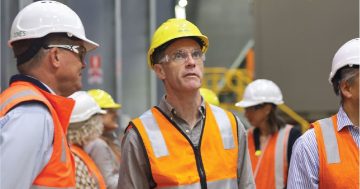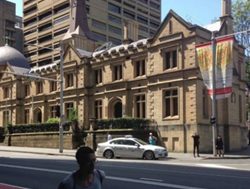 Investment NSW has commissioned a research project to delve into Sydney’s music and nightlife spaces to understand the health of the city’s economy after dark.
Investment NSW has commissioned a research project to delve into Sydney’s music and nightlife spaces to understand the health of the city’s economy after dark.
Announced by the Minister for Music and the Night-time Economy, John Graham, the Creative Footprint study is to examine the value and impact of Sydney’s music and nightlife spaces, comparing it against a dataset of over 5,000 venues taken from some of the world’s leading night-time cities.
“Sydney’s night-time economy has rebounded well from an era of lockouts and lockdowns, but more work is required to get people out after dark and to activate our precincts,” Mr Graham said.
“It is vital the industry helps lead the charge so Creative Footprint Sydney will hold a series of focus groups and in-depth interviews with local experts and stakeholders to better understand our city’s unique challenges and opportunities,” he said.
“The first priority is for Government to have a good baseline data set to understand the health of our economy after dark.”
24-Hour Economy Commissioner Michael Rodrigues said Sydney would be the sixth city to undertake the Creative Footprint project since 2017, following Berlin, New York, Tokyo, Stockholm, and Montreal.
“We rely on evidence-based policy and insights from the night-time sector to inform our work, so the project’s findings will help us to further boost Sydney’s nightlife renaissance,” Mr Rodrigues said.
“The research team will gather insights from dozens of stakeholders and decision-makers embedded in Sydney’s creative, music and nightlife scene to assess the current picture and provide actionable solutions.”
He said Creative Footprint, a joint project by VibeLab and PennPraxis, would combine local insights with thousands of unique data points from venues across three continents.
“The information is then integrated with economic and spatial data from Government databases to develop a rich cultural analysis of Sydney’s artistic and creative night-time infrastructure,” Mr Rodrigues said.
“The study is expected to produce a final report outlining policy recommendations by October 2023.”











